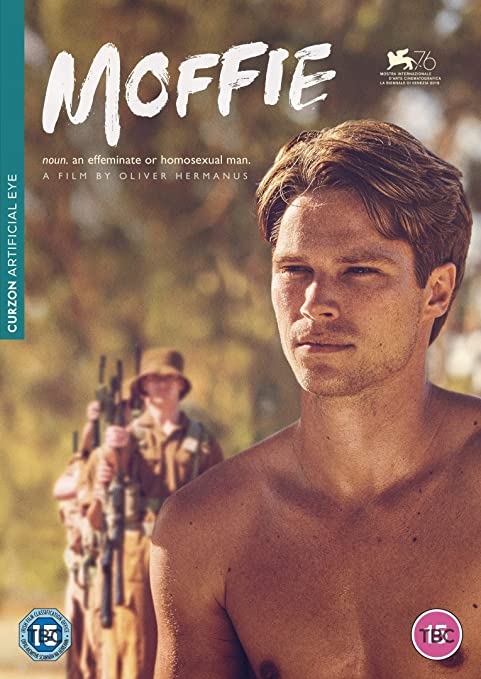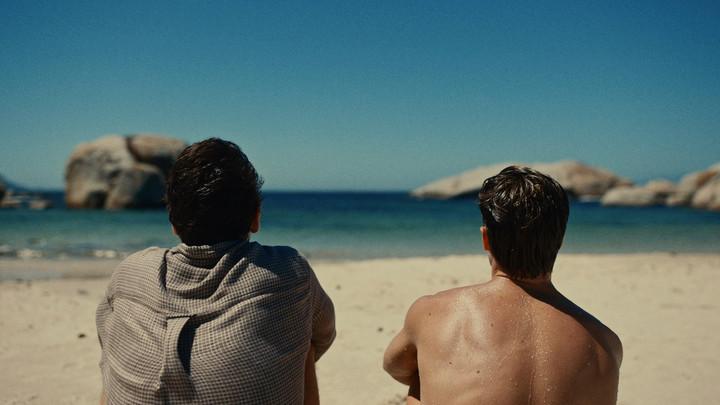Characterised by jarring juxtapositions of intense, appalling violence and the serene beauty of South Africa, Oliver Hermanus’ fourth feature is the story of a young man coming to terms with his sexuality against the background of apartheid and prejudice.
It's set in 1981, over a decade before homosexuality was legalised in South Africa, when any expression of same-sex attraction in the military meant a trip to Ward 22, where Dr Aubrey Levin subjected his patients to inhumane "treatments". The threat of this punishment hangs over the protagonist, Nick van der Swart (Kai Luke Brummer), its effects seen in others as he attends a military training camp in the desert.
However heavy Moffie can be at points, Nick’s emotional disconnect lends an abstraction that saves it from being overwhelming. He often looks directly at the camera but his character and face have an inscrutability that creates distance. This dislocation and disconnection is characteristic of the film, perhaps an echo of the reality of a gay man whose physical encounters must be constantly controlled. At the point where Nick experiences his first kiss, the action shifts back in time to his childhood, to when he was caught spying on a boy changing at the pool and humiliated in front of a crowd. With age, the consequences only grow worse.

The music for Moffie is particularly well chosen and renders the horrific almost beautiful. One of the most intense moments occurs towards the start, an aerial shot showing the train winding its way through the scrub to the training camp that's overlaid by sparse, ominous strings.
The horror of apartheid is shown starkly here, when a single black man has a bag of sick thrown at him for sitting on the wrong bench. There is only one other scene with black characters in Moffie, their mute suffering a terrible reminder of deeply entrenched racism. There is a distinctly uncomfortable homogeneity to Moffie as a whole. Most of the film is occupied by young white males, and the unwholesomeness of racial purity is expressed by this corrupted monoculture.
There is also something very unsettlingly childlike about the characters and their setting. The training camp has something of the feel of a holiday camp, albeit one with routine abuse and brutal fighting. This is only intensified as the audience is reminded that they are only in their late teens at points of extreme violence. Just before the troop goes to the border with Angola (the frontline in the current war), they try to pick up girls in a bar, their youthful innocence a painful contrast with their next day’s duty.
The film's real strength is this, showing the strange mix of fragility and brutality that young men possess, partly reflected in the film’s setting. It depicts very well the point at which their plasticity hardens into violent hatred, in a country formed by oppression and cruelty. It is particularly interesting that the film concludes at the edge of the ocean, expressing a potential freedom that could never be granted in the arid interior.













Add comment